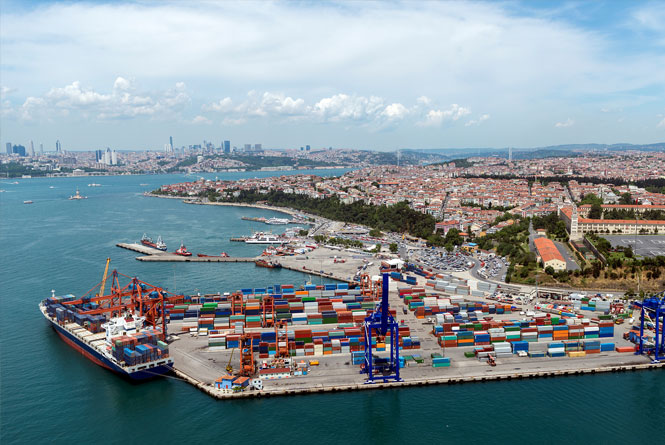As the economic core of the Middle East and an important partner of the "Belt and Road", Saudi Arabia has become a popular destination for Chinese companies to go to sea with the economic diversification reforms promoted by the "2030 Vision. However, this market, which combines religious tradition and modern ambition, puts forward extremely high requirements for the compliance ability and cultural adaptability of enterprises. Enterprises need to accurately grasp the legal red line, cultural customs, market rules and risk prevention and control points in order to achieve sustainable development.

1. Policy and Legal Compliance
new Investment Law and Access Rules
saudi Arabia will fully implement the new Investment Law in 2025, adopt a negative list management model, and retain pre-approval only for specific areas (e. g. national security, sensitive industries). Enterprises need to confirm whether the investment area is in the list, and meet the localization ratio, minimum capital and other requirements.
Compliance focus: Apply for PC (Product Conformity Certificate) and SC (Shipment Conformity Certificate) through SABER system to ensure that the product meets Saudi technical standards (such as SASO certification). Goods without a certificate will be refused entry or detained.
Foreign Ownership and Localization Requirements
saudi Arabia pursues a "Saudisation" policy that requires companies to employ a certain percentage of local employees (e. g. 30% of Saudi workers in manufacturing). Companies need to develop localized employment plans to avoid fines or project interruptions due to violations.
Saudi Arabia's VAT rate is 15%, and companies are required to register their tax numbers and file them on time. Enterprises in free trade zones (e. g. Riyadh Digital City) can enjoy tax relief, subject to certain conditions (e. g. export-oriented, technology-intensive).
Recommendation: Use the Saudi Industrial Development Fund (SIDF) subsidy policy to reduce initial input costs.
2, Cultural and Religious Adaptation
religious Customs and Business Etiquette
saudi Arabia strictly follows Islamic law and needs to adjust working hours during Ramadan (such as shortening day shifts and extending night shifts) to avoid scheduling meetings during prayer times.
Taboo: prohibit drinking, eating pork, business occasions to avoid the left hand delivery or pointing to others.
Language and Marketing Localization
all marketing materials and product specifications must be in Arabic and conform to local aesthetics (e. g. avoid using bright colors other than green).
Holidays and Consumption Habits
saudi holidays are concentrated on religious festivals (such as Eid al-Fitr and Eid al-Adha), during which consumption surges. Businesses can launch promotions for the holiday (e. g., trade-in of appliances).
Data: During Eid al-Fitr in 2025, Saudi e-commerce sales increased by 40% year-on-year, of which 3C products accounted for more than 60%.
3. Operational and market risk
supply Chain and Logistics Costs
saudi Arabia has high logistics costs (about 14% of GDP) and companies need to optimize their supply chain layout. For example, the establishment of a regional storage center near the port of Jeddah and the use of the Red Sea project's supporting logistics network to reduce transportation time.
Data: The shipping time from China to Saudi Arabia is about 20-25 days, and the air transportation time is about 3-5 days, but the cost of air transportation is 5-8 times that of sea transportation.
Market Competition and Differentiation Strategy
the Saudi market is targeted by global businesses and the competition is fierce. Companies need to avoid direct competition with mature international brands and focus on niche areas.
Data Security and Privacy Protection
saudi Arabia requires data collection companies such as car networking and financial technology to set up local storage centers. Companies are required to comply with the Saudi Personal Data Protection Act (PDPL) to avoid cross-border data transfer violations.
Recommendation: Work with your on-premises cloud service provider to ensure data compliance.
4. Strategic recommendations
staged Layout
light assets test water: through local agent distribution or the use of free trade zone to establish regional centers, reduce the risk of initial investment.
Heavy asset cultivation: direct registration of local companies in government-encouraged areas (e. g. new energy, manufacturing) for more projects and concessions.
Building a Local Relationship Network
actively participate in government tenders, industry forums, and establish contacts with the Saudi Ministry of Investment (MISA) and relevant industry associations.
Long-term commitment and brand building
fulfilling corporate social responsibility (CSR), such as participating in education and environmental protection projects under the "2030 Vision. A Chinese construction company enhances its brand reputation and gets priority for subsequent projects by donating facilities to a local school.
Zhuoxin Enterprise provides agency services such as domestic and foreign company registration, bank account opening, annual tax return, agency bookkeeping, trademark registration, ODI Overseas Investment Filing, etc. If you have any business needs in this area, please feel free to consult our online customer service!










Zhuoxin Consulting relies on its Chinese service network and Dubai executive team to provide professional one-stop business services without communication barriers for Chinese companies to enter the Middle East market. Its business covers company establishment and maintenance, accounting and taxation, bank account opening, PRO services and business services.
Zhuoxin Consulting has high-quality business resources and maintains close cooperation with many free zones, bankers and tax departments in the UAE to escort your expansion in the Middle East market.
厦门卓信世野信息咨询有限公司 地址:厦门市思明区厦禾路189号银行中心2712B单元
免责声明:本网站与任何政府机构均无关联,我们提供第三方咨询和公司注册支持。